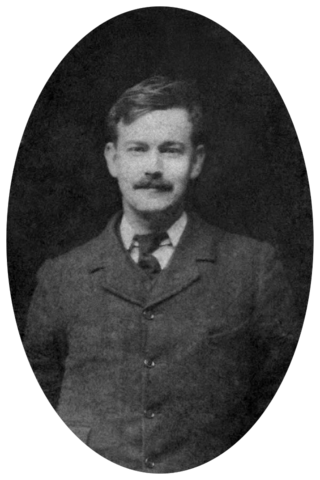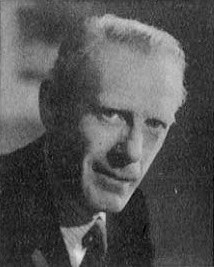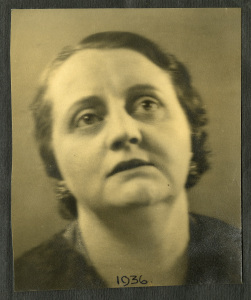Related Research Articles

Ruskin College, originally known as Ruskin Hall, Oxford, is an independent educational institution in Oxford, England. It is not a college of Oxford University. It is named after the essayist, art and social critic John Ruskin (1819–1900) and specialises in providing educational opportunities for adults with few or no qualifications. Degrees taught at Ruskin were awarded by the Open University. The college planned to merge with Activate Learning from July 2021, but instead was acquired by the University of West London during August 2021.

Sir Richard Stafford Cripps was a British Labour Party politician, barrister, and diplomat.

The Education Act 1944 made major changes in the provision and governance of secondary schools in England and Wales. It is also known as the "Butler Act" after the President of the Board of Education, R. A. Butler. Historians consider it a "triumph for progressive reform," and it became a core element of the post-war consensus supported by all major parties. The Act was repealed in steps with the last parts repealed in 1996.

Richard Henry Tawney was an English economic historian, social critic, ethical socialist, Christian socialist, and important proponent of adult education. The Oxford Companion to British History (1997) explained that Tawney made a "significant impact" in all four of these "interrelated roles". A. L. Rowse goes further by insisting that "Tawney exercised the widest influence of any historian of his time, politically, socially and, above all, educationally".
The Workers' Educational Association (WEA), founded in 1903, is the UK's largest voluntary sector provider of adult education and one of Britain's biggest charities. The WEA is a democratic and voluntary adult education movement. It delivers learning throughout England and Scotland. There was a related but independent WEA Cymru covering Wales, though it is now known as Adult Learning Wales since a merger in 2015 with YMCA Wales Community College.

George Heriot's School is a Scottish independent primary and secondary day school on Lauriston Place in the Old Town of Edinburgh, Scotland. In the early 21st century, it has more than 1600 pupils, 155 teaching staff, and 80 non-teaching staff. It was established in 1628 as George Heriot's Hospital, by bequest of the royal goldsmith George Heriot, and opened in 1659. It is governed by George Heriot's Trust, a Scottish charity.

James Francis "Frank" Horrabin was an English socialist and sometimes Communist radical writer and cartoonist. For two years he was Labour Member of Parliament for Peterborough. He attempted to construct a socialist geography and was an associate of David Low and George Orwell.

Arthur Jenkins was a Welsh coal-miner, trade unionist and Labour politician who served as vice-president of the South Wales Miners' Federation and MP for Pontypool. He was the father of the Labour politician Roy Jenkins.

Andrew Adonis, Baron Adonis, is a British Labour Party politician and journalist who served in HM Government for five years in the Blair ministry and the Brown ministry. He served as Secretary of State for Transport from 2009 to 2010, and as Chairman of the National Infrastructure Commission from 2015 to 2017. He is also Chairman of the European Movement, having previously served as Vice-Chairman from 2019 to 2021. He is currently a columnist for The New European.
Brian Simon was an English educationist and historian. A leading member of the Communist Party of Great Britain, his histories reflected a Marxian interpretation.
Herbert Delauney Hughes, known as Billy Hughes, was a British adult educationist and Labour Party politician. He was a member of parliament (MP) from 1945 to 1950 and principal of Ruskin College from 1950 to 1979.
The Plebs' League was a British educational and political organisation which originated around a Marxist way of thinking in 1908 and was active until 1926.
The Central Labour College, also known as The Labour College, was a British higher education institution supported by trade unions. It functioned from 1909 to 1929. It was established on the basis of independent working class education.

Alexander Ekanayake Gunasinha trade unionist and politician. A pioneering trade union leader, known as the "Father of the Labour Movement", he was the founder of the Ceylon Labour Party, Sri Lanka's first labour organisation. A former mayor of Colombo, he served as the Minister without portfolio, Minister of State and Chief Government Whip in the First Parliament of Sri Lanka and Ceylon's Ambassador to Burma and Indonesia.
James Dennis Hird was a British clergyman, educator and author.
Sir Herbert William Emerson,, commonly known as H. W. Emerson, was a civil servant in British India and served as Governor of the Punjab in the 1930s.

The Communist Party of Great Britain (CPGB) was the largest communist organisation in Britain and was founded in 1920 through a merger of several smaller Marxist groups. Many miners joined the CPGB in the 1926 general strike. In 1930, the CPGB founded the Daily Worker. In 1936, members of the party were present at the Battle of Cable Street, helping organise resistance against the British Union of Fascists. In the Spanish Civil War the CPGB worked with the USSR to create the British Battalion of the International Brigades, which party activist Bill Alexander commanded.

Winifred Horrabin, née Batho (1887–1971), was a British socialist activist and journalist.
The National Council of Labour Colleges (NCLC) was an organisation set up in the United Kingdom to foster independent working class education.
Mary Jane Bridges-Adams was a British educationalist, socialist, and activist. She campaigned for free, compulsory, secular education for all and for free school meals.
References
- ↑ "William Craik". Spartacus Educational. Retrieved 22 January 2019.
- ↑ Millar, JPM (1979). The Labour College Movement. London: NCLC Publishing Society.
- ↑ McIlroy, John (2007). "Two Tales about Crisis and Corruption at the Central Labour College". Labour History Review. 72 (1, April 2007): 69–93. doi:10.1179/174581807X179930.
- ↑ Gareth Stedman Jones (1 November 1984). "Thou shalt wage class war". London Review of Books. 06 (20). ISSN 0260-9592.